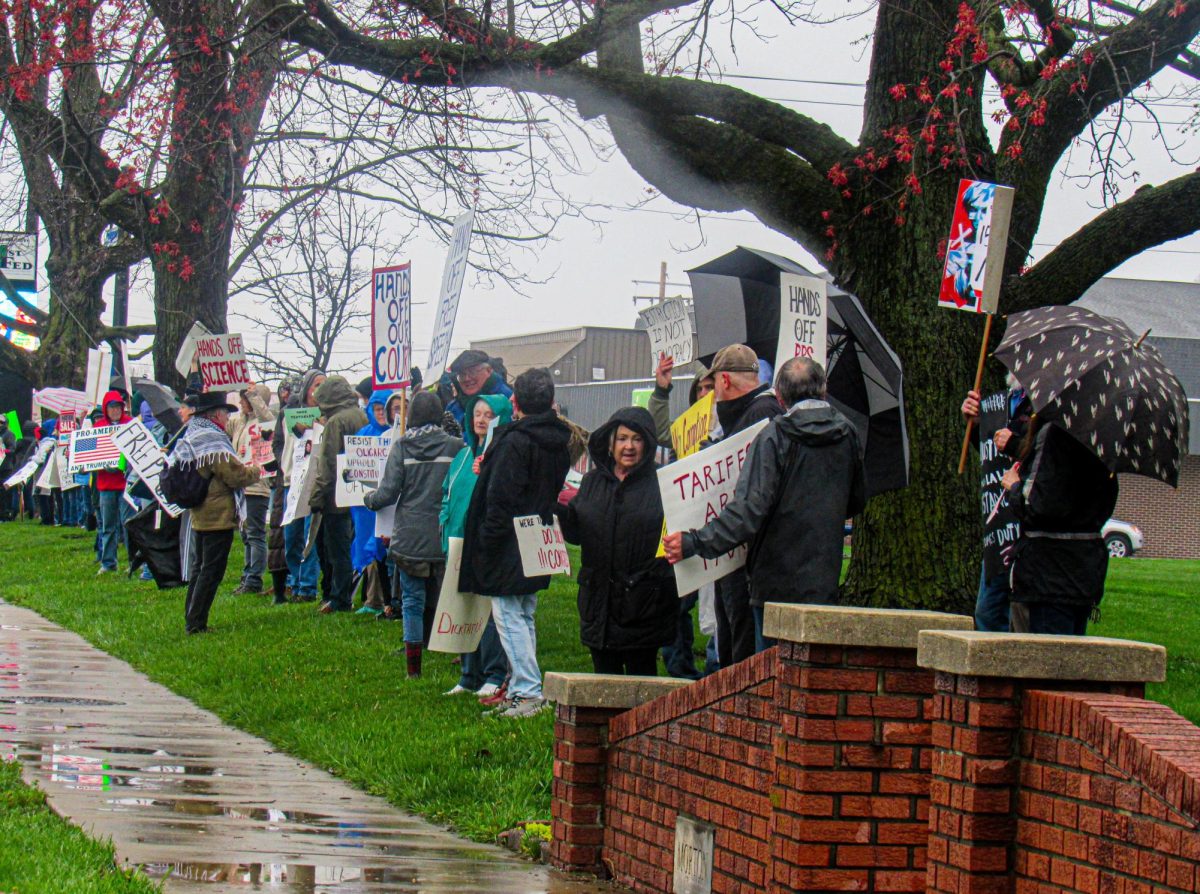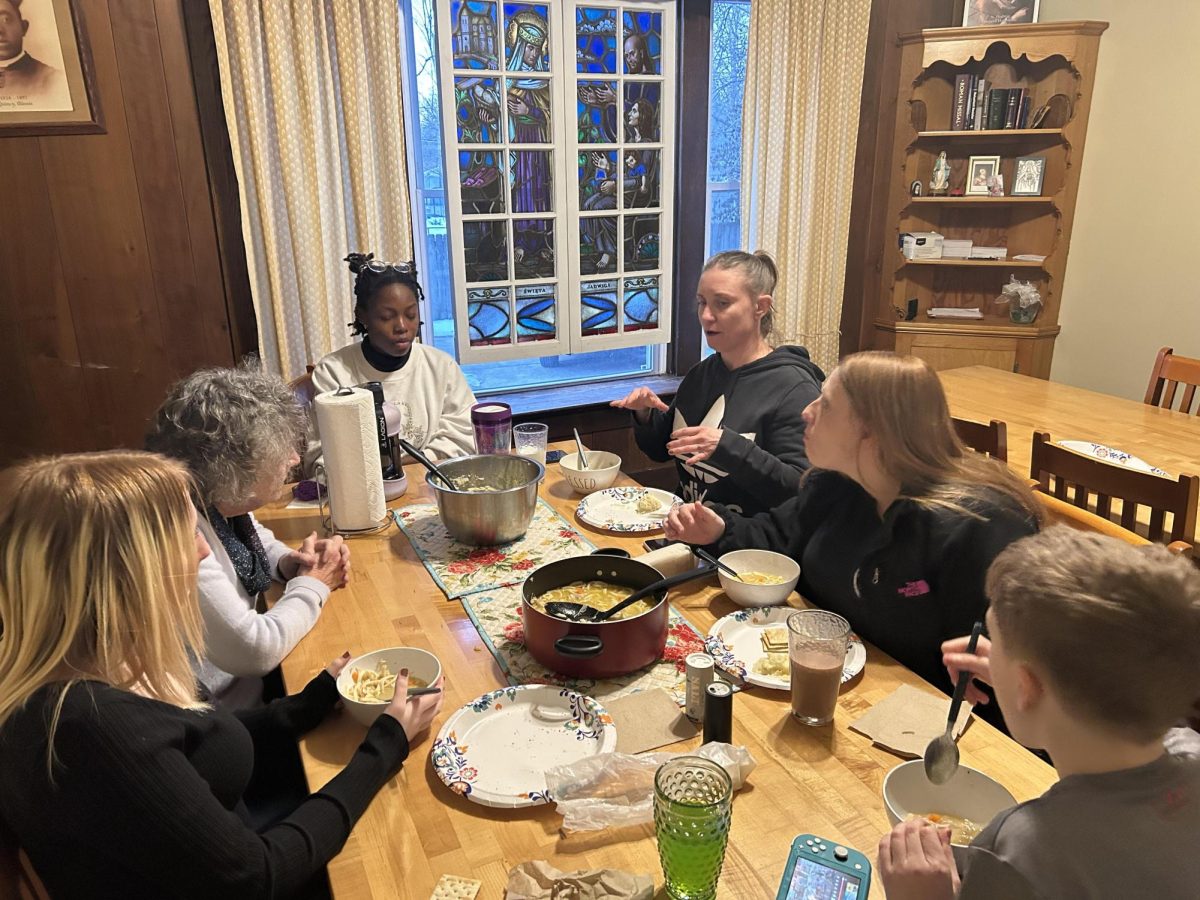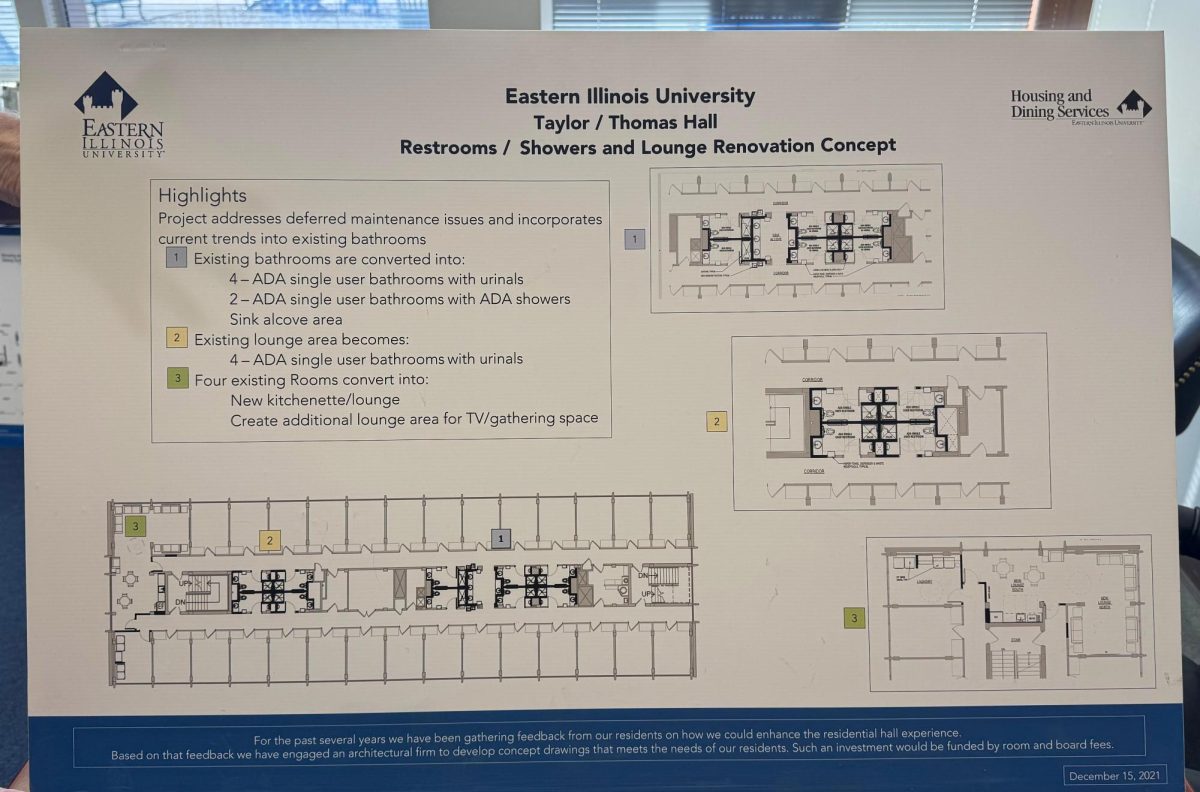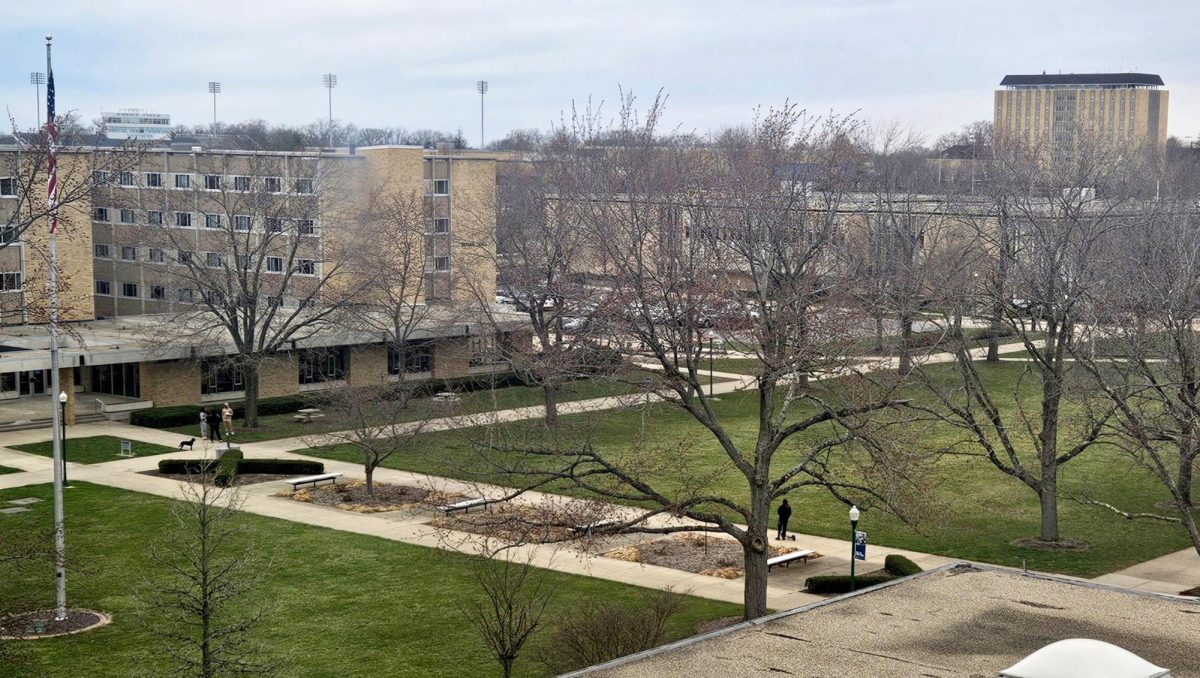In Coles County, it’s unlikely to see people dealing with homelessness, but it may be more abundant in the county than what’s visible to the eye.
“I always think it’s really important to make sure people understand the definition of homelessness,” Kristen Holly, the homeless liaison of the Charleston Unit School District 1 said. “We’re used to seeing people laying on the streets or in tents in the city.”
Holly said students who are displaced, unaccompanied or not living with their parents/legal guardian regardless of the reason are considered homeless.
There are currently 150 students in the district, Holly said, that are considered McKinney-Vento, named after the McKinney-Vento Homeless Assistance Act.
The federal law works to ensure educational stability for homeless youth, according to CUSD 1’s homeless education page.
As the homeless liaison, Holly’s responsibility is to work with McKinney-Vento students to make sure that they’re still able to get transportation to school, enrolled in school and even help to get school supplies if a student needs it.
“They might need clothing or shoes, or if they need eyeglasses, we have funds set aside to help with that,” Holly said. “Our responsibility as a public school system is to remove barriers for their education.”
Holly said the number of students that are McKinney-Vento has increased every year for the past five years. One reason for that, she said, is because of the high poverty rate in Coles County.
Currently, the county’s poverty rate sits at 17.3%, according to the US Census Bureau, as of July 1, 2024. That is 5.7% higher than Illinois’ state average.
Holly said as the poverty rate continues to climb, so does the number of students who are considered McKinney-Vento.
“Oftentimes those two go hand-in-hand as families come into hard times or face challenges as a low-income family,” Holly said. “Sometimes that means doubling up.”
Part of Holly’s job is to train faculty and staff to listen out for remarks that students may make over the course of the school day that hint towards possible housing insecurity in their home life.
“We just have to listen for it,” Holly said. “If a student says to a teacher, ‘I moved in with my aunt or my cousin this weekend because we don’t have a place to live,’ that teacher needs to make sure that we get that student flagged in our system.”
Other resources for those experiencing homelessness are organizations like Matthew 25, which is a volunteer-run initiative that gives those without shelter an opportunity to stay in a motel room for up to six months rent and utility free.
A community member would alert Matthew 25 to someone without shelter, and, if deemed eligible after a background check, would get a spot on the waiting list, according to Matthew 25 President Todd Foster.
Matthew 25 currently has 14 rooms, all of which are occupied, and another 35 people on the waiting list, Foster said.
“There’s very limited housing resources here in Coles County,” Foster said. “We can get them to focus on other things that they can do to be better in their life. We can send them towards resources for food. We can send them towards resources for clothing.”
Another resource is the St. Hedwig’s Haus of Hospitality, a Catholic worker house for women and children. Two Eastern students, who are Catholic workers, live rent-free with four women and three children in the house.
However, this isn’t a short-term shelter. There’s a heavy vetting process and then a board meets with a prospective guest to determine whether or not the haus is a good fit for them.
“Often it’s a long-term process of residence until they either complete education or pay off bills and are able to save money for their own deposit,” said Terry Coulton, a board member and contact person. “We provide the basic food and the house, so they’re really free to pursue those goals.”
The haus also lists more homeless resources in Coles County on its website.
Gabe Newman can be reached at 581-2812 or at ghnewman@eiu.edu.








![[THUMBNAIL EDITION] (From left to right) Head football coach Chris Wilkerson works with his son student assistant coach Peyton Wilkerson at football practice at O'Brien Field on the Eastern Illinois University campus on Thursday.](https://www.dailyeasternnews.com/wp-content/uploads/2025/04/FB_25_O-1-e1744234837107-1200x596.jpg)




![[Thumbnail Edition] Charleston High School sophomore Railyn Cox pitches the ball during Charleston's 8-7 win over Flora High School on Monday, March 31.](https://www.dailyeasternnews.com/wp-content/uploads/2025/04/SBHS_01_O-1-e1743982413843-1200x1023.jpg)



![[Thumbnail Edition] Senior Foward Macy McGlone, getsw the ball and gets the point during the first half of the game aginst Western Illinois University,, Eastern Illinois University Lost to Western Illinois University Thursday March 6 20205, 78-75 EIU lost making it the end of their season](https://www.dailyeasternnews.com/wp-content/uploads/2025/03/WBB_OVC_03_O-1-e1743361637111-1200x614.jpg)




















![[Thumbnail Edition] Eastern Illinois softball senior infielder Briana Gonzalez resetting in the batter's box after a pitch at Williams Field during Eastern’s first game against Southeast Missouri State as Eastern split the games as Eastern lost the first game 3-0 and won the second 8-5 on March 28.](https://www.dailyeasternnews.com/wp-content/uploads/2025/04/SBSEMO_11_O-1-e1743993806746-1200x692.jpg)















![The Weeklings lead guitarist John Merjave [Left] and guitarist Bob Burger [Right] perform "I Am the Walrus" at The Weeklings Beatles Bash concert in the Dvorak Concert Hall on Saturday.](https://www.dailyeasternnews.com/wp-content/uploads/2025/03/WL_01_O-1200x900.jpg)















![[Thumbnail Edition] Eastern Illinois University President Jay Gatrell welcoming staff and faculty to the Spring 2025 Plan 2028 update in Doudna Fine Arts Center on March 26, 2025.](https://www.dailyeasternnews.com/wp-content/uploads/2025/03/P2028_01_O-1-e1743206673730-1200x560.jpg)



